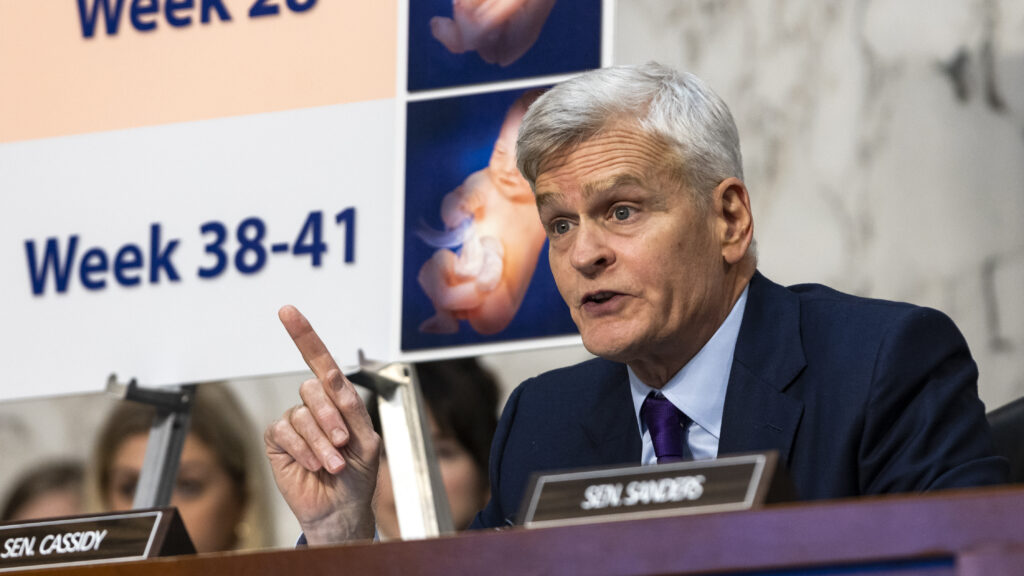But in the hearing room Tuesday, Republicans accused Democrats of “fear-mongering” over restrictive laws and pointed to states’ exceptions to save the life of the parent.
Abortion advocates argue that these exceptions do not work and needlessly put patients in critical situations before they are cleared for the procedure.
“For those who have no understanding of the complexities of the human body or the perils of pregnancy, this exception might seem self-explanatory,” said Allison Linton, chief medical officer of Planned Parenthood of Wisconsin. “It is not. On one hand, we risk medical malpractice and harming a patient if we don’t act soon enough, and on the other we risk criminal prosecution if a prosecutor feels that we acted too early.”
Nisha Verma, a fellow at Physicians for Reproductive Health in Atlanta, echoed those remarks, saying that exceptions for life-threatening conditions in bans introduce liability for doctors and fears for patients.
“It has been devastating to have to look at patients and say, ‘I can’t help you. I can’t provide this care, or I have to wait for you to get sicker,’ and it creates a huge amount of mistrust that patients have for both the health care system and the government,” said Verma. “There is not a line in the sand where someone goes from being totally fine to acutely dying.”
There are two Republican women senators on the committee. Though Maine Sen. Susan Collins did not attend the hearing, Alaska Sen. Lisa Murkowski noted that both have worked on legislation to codify Roe’s federal protections.
“I recognize it’s unlikely that the Congress is going to pass legislation, certainly in this Congress, but I will tell you I continue to hear from so many in my state, women in Alaska, who are concerned about access to abortion, access to reproductive services,” said Murkowski. “What we have seen from decisions across the country, in the lower 48, is a ripple effect that has come all the way up to the north,” she continued, saying that a Planned Parenthood clinic in Alaska had closed and rural access to care had become increasingly difficult.
Mail-order supplies of mifepristone pills — which the Supreme Court could roll back this month — are paramount to keeping up access to early-term abortion in those environments, Destiny Lopez, the acting co-CEO of the Guttmacher Institute, told Murkowksi.
Separately this week, some Democratic members introduced legislation to guard in vitro fertilization from states’ abortion bans, after an Alabama Supreme Court decision threw the procedure into limbo in the state. Alabama Republican Sen. Katie Britt, along with Sen. Ted Cruz (R-Tex.) had previously introduced a bill that would pull Medicaid funding from states that bar IVF but allow for some restrictions on the procedure.
On Wednesday, senators are also expected to vote on legislation aimed at ensuring access to contraception.
Some Republicans have sought to delink the two issues — abortion and contraception — but the gray area between them came up during the hearing when Sen. Patty Murray (D-Wash.) asked Christina Francis, CEO of the American Association of Pro-Life Obstetricians and Gynecologists, whether she supported access to copper intrauterine devices, a non-hormonal form of contraception.
The product’s packaging “states that they do prevent implantation, even if fertilization has occurred, which would classify that as an abortifacient,” Francis said.
While copper IUDs can be implanted as emergency contraception, evidence does not suggest that they damage fertilized embryos. The Food and Drug Administration in late 2022 made similar clarifications about Plan B, the emergency contraceptive pill.
This story is part of ongoing coverage of reproductive health care supported by a grant from the Commonwealth Fund.

